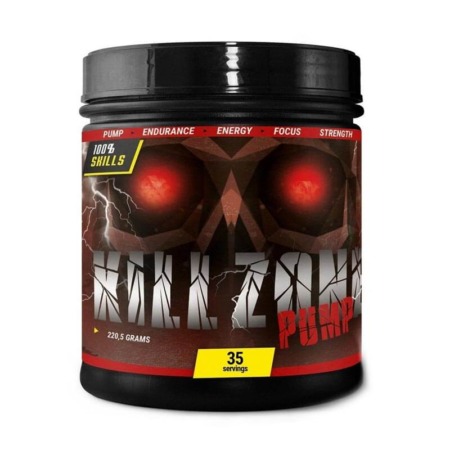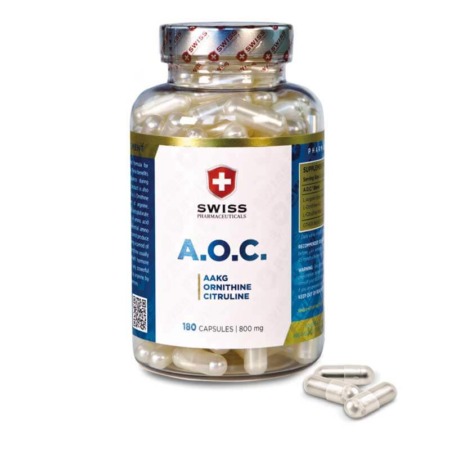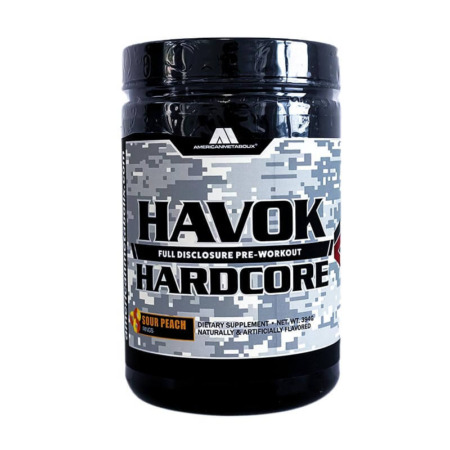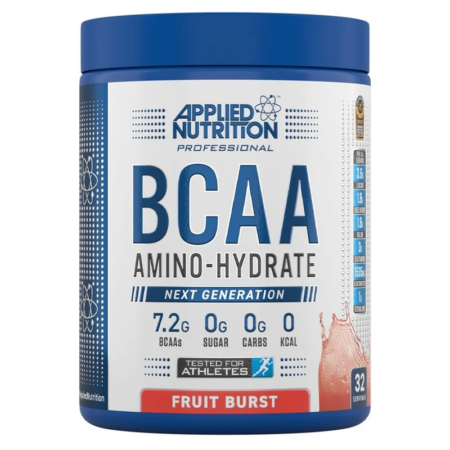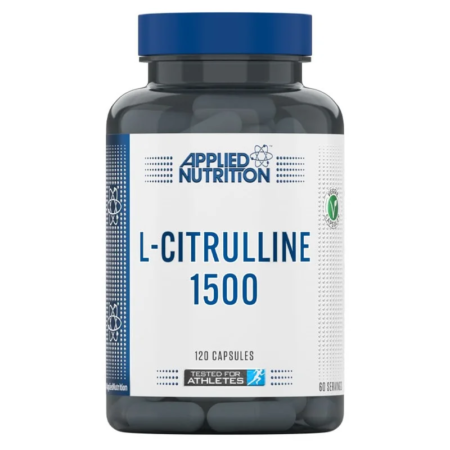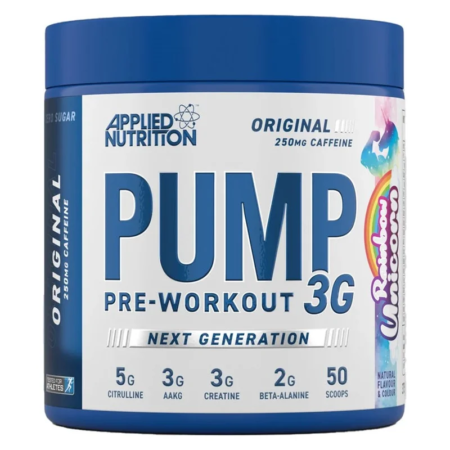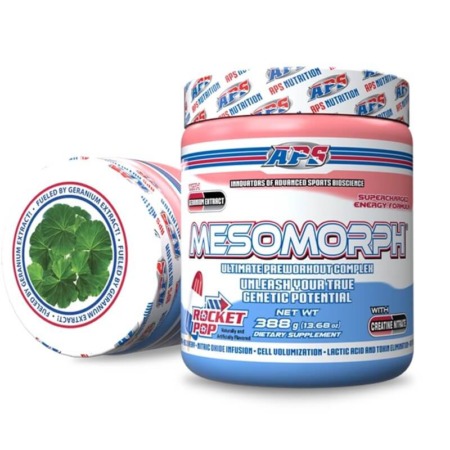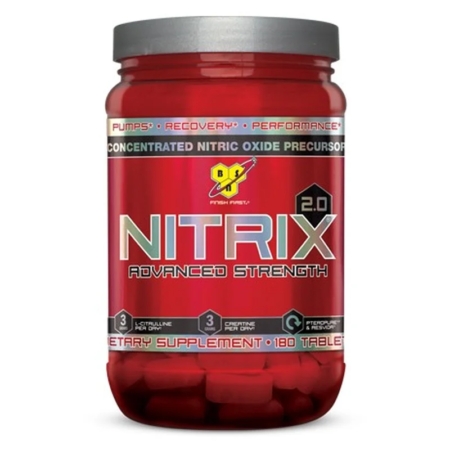Citrulline
Citrulline is a non-essential amino acid that is well known in the fitness community. It plays an important role in metabolic processes and is touted for its ability to improve endurance and muscle recovery. This amino acid, which is often extracted from watermelon, has found its way into numerous pre-workout supplements because it greatly influences ammonia breakdown and increases nitric oxide levels in the blood. These effects contribute significantly to improving blood flow, which is crucial during high-intensity workouts.
The benefits of citrulline go beyond simply improving endurance. By reducing the buildup of ammonia and lactic acid in the muscles during exercise, citrulline helps prevent fatigue, allowing athletes and fitness enthusiasts to train harder and longer. This is particularly beneficial for those doing long or high-intensity workouts where quick recovery is important. By optimizing the breakdown of metabolic by-products, citrulline also contributes to faster recovery and readiness for the next training sessions.
WHAT IS CITRULLINE?
Citrulline is often discussed in health and fitness circles, but what exactly is this compound? First and foremost, citrulline is involved in the urea cycle – a critical process in the liver where it helps detoxify ammonia by converting it into urea, which is then excreted through the urine. This detoxification not only supports muscular endurance, but also overall metabolic health.
In addition, citrulline’s role in promoting vasodilation – the widening of blood vessels – is crucial for anyone looking to increase their physical performance and efficiency during exercise. Vasodilation improves oxygen and nutrient distribution to body tissues, which is crucial during and after intense physical activity to ensure that muscles receive the nutrients they need for repair and growth.
HOW DOES CITRULLINE WORK?
Citrulline’s effectiveness as a dietary supplement is due to its ability to increase blood levels of arginine, which is a direct precursor to nitric oxide, a compound that is important for blood vessel dilation. This increase in nitric oxide improves blood flow and tissue oxygenation, which is particularly important during physical exertion.
The improved blood flow not only helps to ensure that the muscles are supplied with more oxygen and nutrients, but also that harmful metabolic waste such as lactic acid is removed more efficiently. This process significantly reduces muscle soreness and contributes to faster muscle recovery. Citrulline is therefore particularly effective for those who do strength training and endurance sports, as it helps to maintain the integrity and function of the muscles.
Benefits of citrulline
The benefits of incorporating citrulline into your supplement program are numerous and can impact various aspects of health and performance:
- Increases blood flow, which is essential for optimal muscle function and growth.
- Enables faster muscle recovery by accelerating the removal of metabolic waste.
- Reduces fatigue, allowing for longer and more intense workouts.
- Improves endurance by improving oxygen utilization during exercise.
- Promotes cardiovascular health by improving vascular function and lowering blood pressure.
- Increases the production of nitric oxide, which is important for effective vasodilation.Improves overall performance by improving nutrient delivery to tissues.
- Supports a healthier immune system response after strenuous exercise.
- Improves mental focus and cognitive performance by improving blood flow to the brain.
ARE THERE ANY BENEFITS OF L-CITRULLINE AFTER TRAINING?
Taking L-citrulline after exercise can play a crucial role in the muscle recovery process by facilitating the breakdown of lactic acid and other metabolic waste that accumulates during exercise. This not only speeds up the recovery process, but also improves the muscles’ ability to repair and grow.
In addition, continued consumption of L-citrulline after exercise supports increased protein synthesis and muscle hypertrophy, which are essential for muscle growth and endurance. Regular intake can lead to a sustained improvement in physical performance and overall fitness.
How much L-citrulline should you take before training?
The optimal dosage of L-citrulline before exercise depends on your individual fitness goals and the intensity of your training plan. However, most studies suggest that a dose of 6-8 grams of L-citrulline approximately 30 to 45 minutes before physical activity provides the greatest possible benefit, especially in terms of increased nitric oxide production and improved exercise performance.
HOW DOES IT DIFFER FROM L-ARGININE?
L-citrulline and L-arginine are both involved in the production of nitric oxide, but have different modes of action and absorption rates in the body. L-citrulline is generally preferred over L-arginine because it causes a more sustained increase in blood arginine levels, which in turn supports nitric oxide production more consistently.
In addition, L-citrulline is less likely to cause gastrointestinal distress, a common side effect of L-arginine, making it a more favorable option for long-term supplementation, especially for those with a sensitive digestive system or those on a strict training schedule.
What are the effects of citrulline?
The main effect of citrulline is to increase athletic performance and overall physical health. By increasing arginine and therefore nitric oxide levels, citrulline improves blood flow and ammonia breakdown, which is essential for reducing fatigue and improving performance. This makes citrulline an essential supplement for athletes, bodybuilders and anyone who wants to maintain a healthy and active lifestyle.



